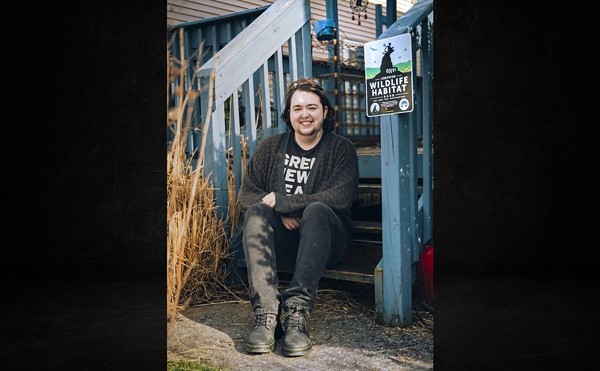Vance’s book, Hillbilly Elegy: A Memoir of a Family and Culture in Crisis, published last June, is being hailed as a decoder ring to the reasons voters in states like Ohio, Pennsylvania, Wisconsin and Michigan supported Donald J. Trump in his improbable run to become the president of the United States.
Ohio’s own U.S. Sen. Rob Portman called Vance’s memoir “one of the most important books of 2016.” Portman insists, “This isn’t just Mr. Vance’s story. It’s the story of many other people across rural America who have lost hope.”
Many seem to agree: Vance has been summoned by everyone from television talking heads like Hardball’s Chris Matthews to The New York Times opinion page to explain why working-class white males, most of whom but not all are conservatives like Vance, voted for a man who seems to be the antithesis of everything they know and hold dear — a billionaire businessman and reality TV star from New York City.
The most curious aspect of Vance’s book is that Trump’s name is not mentioned anywhere in its 261 pages. Hillbilly Elegy wasn’t intended as anything more than the intimate story of how Vance’s upbringing in Butler County’s Middletown made him the man he is today — a self-described “hillbilly” who beat the odds to serve in the military and become an Ivy League-educated lawyer and dedicated husband to an equally successful wife. And while he does try to address how the white working class he grew up with is losing its grip on the American Dream, he does so by relaying first-person anecdotes instead of broad generalities. He’s as perplexed and frustrated about the situation as anyone and he isn’t afraid to criticize those who use the so-called “Obama economy” as an excuse to not work hard.
He doesn’t shy away from telling the messy story of his family and how it has impacted his life — his mother has struggled with addiction to drugs and alcohol and moved from man to man for as long as he can remember, and his biological father has largely been absent from his life.
Enter Mamaw Blanton, his beloved grandmother, the most steadying presence in his life. “My grandparents — Mamaw and Papaw — were, without question or qualification, the best things that ever happened to me,” he writes. “They spent the last two decades of their lives showing me the value of love and stability and teaching me life lessons that most people learn from their parents.”
Mamaw and Papaw came from a long line of hillbillies from eastern Kentucky who eventually moved north in an effort to find a better life and the America Dream. They chose Middletown due to its proximity to Armco Steel (later known as AK Steel) and the stable, well-paying jobs that surrounded the industry — jobs that now aren’t as plentiful for a variety of reasons.
Vance’s portrait of Mamaw — a tough, foul-mouthed woman who cherished family, especially her grandson, above all else — is occasionally critical but never less than loving. Likewise, Vance’s description of his mother’s problems and how they have impacted him and his older sister Lindsay are among the most moving and incisive passages in the book.
“There is room now for both anger at Mom for the life she chooses and sympathy for the childhood she didn’t,” Vance writes late inHillbilly Elegy.
Vance effectively ties the struggles of the community he came from with those of his mother, a woman seemingly forever marked by a turbulent childhood — Papaw had a serious drinking problem for many years, which led to a fracturing of the family unit. Yet Papaw got sober in time to have a positive impact on his grandson. Vance always knew his grandparents would be there for him.
Many have held up Hillbilly Elegy as a dissection of the political climate that has given us a President Trump, but it’s really the coming-of-age tale of a man and his yearning to simultaneously transcend and celebrate his “hillbilly” roots. ©






